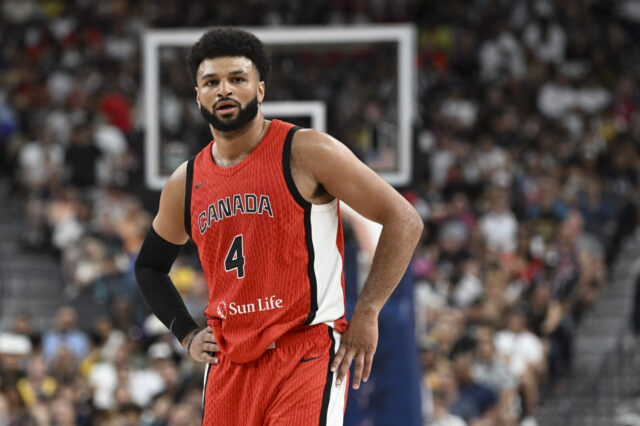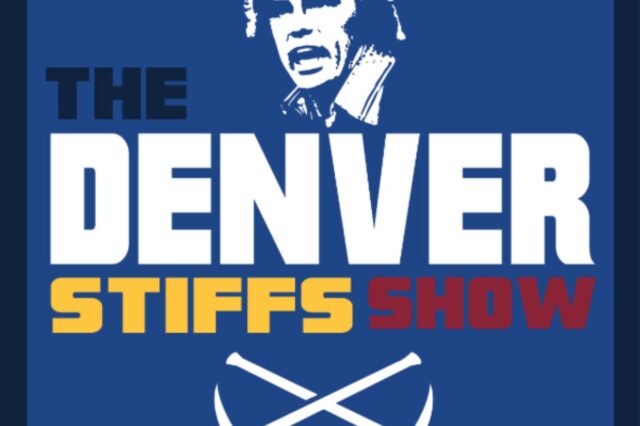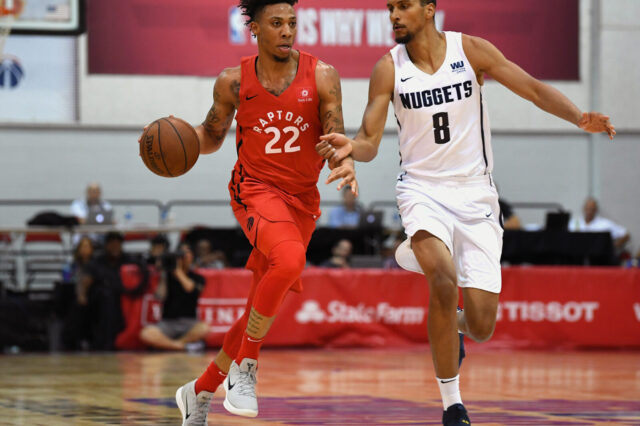After leading Serbia to wins over Greece and Turkey during the FIBA World Cup European Qualifiers, Nikola Jokic’s time playing for his home country of Serbia will continue at EuroBasket.
After a five-year hiatus, EuroBasket will finally return on September 1st . Originally, EuroBasket took place every two years, but that was changed a five years ago. Now, EuroBasket is an event that takes place every four years. That was compounded by the Tokyo Olympics being delayed which pushed EuroBasket to September of 2022. Now, for the first time since 2017, one of the most prestigious international basketball tournaments in the world will continue as it has since its conception in 1935.
It feels like an eternity ago, but the last time EuroBasket crowded a winner it went to Luka Doncic, Vlatko Cancar, and EuroBasket MVP Gordon Dragic as they led Slovenia to Gold. Now, Slovenia will have serious competition looking to knock them off of their path towards becoming consecutive EuroBasket winners.
(Before continuing, let’s make something clear: FIBA World Cup Qualifiers and EuroBasket are distinctly different events. So the last two games that Jokic played for Serbia — wins over Greece and Turkey — and the upcoming EuroBasket tournament have no connection to one another whatsoever.)
To start, let’s outline some basics of EuroBasket 2022.
EuroBasket basics
There are 24 nations taking part in EuroBasket and they are broken into four groups — Group A, Group B, Group C, and Group D. Each of those groups will feature six teams and will be played in four separate cities for the length of group play.
- Group A will play all of their games in Tbilisi, Georgia and will feature Belgium, Bulgaria, Georgia, Montenegro, Spain, and Turkey.
- Group B will play all of their games in Cologne, Germany and will feature Bosnia and Herzegovina, France, Germany, Hungary, Lithuania, and Slovenia.
- Group C will play all of their games in Milan, Italy and will feature Croatia, Estonia, Great Britain, Greece, Italy, and Ukraine.
- Group D will play all of their games in Prague, Czech Republic and will feature Czech Republic, Finland, Isreal, Netherlands, Poland, and Serbia.
Of the 24 teams who enter group play, only 16 will move onto the tournament portion of EuroBasket which means two teams from each group will be eliminated. Once group play concludes, the remaining 16 teams will head to Berlin, Germany for the start of the EuroBasket Tournament and they will remain in Berlin until a team emerges as the victor.
There are also a few fundamental differences between NBA basketball and EuroBasket when it comes to the configuration of the court and the way rules are defined.
- There is no defensive three-second violation which makes defenses like zone more functional; especially when playing against Serbia and Greece when packing the paint to limit Giannis Antetokounmpo and Nikola Jokic is a good strategy.
- Basket interference is defined differently. In the NBA, if the ball is above the cylinder, no one is allowed to touch it. In EuroBasket, once the ball hits the rim, defenders can swat it away or rebound the ball while offensive players can attempt to tip the ball in or dunk it home.
- The size of the EuroBasket court is slightly smaller than a traditional NBA court. NBA courts are 94 feet by 50 feet while the court everyone will be playing on during EuroBasket is 91.9 feet by 49.2 feet.
- Being that the court is smaller, the three-point line is also shorter than a NBA three-point line. In the NBA, the three-point arc is 23.9 feet from the rim while in EuroBasket, the three-point arc will be 22.1 feet.
- The length of a game in EuroBasket is eight minutes shorter than the NBA resulting in four 10-minute quarters as opposed to the NBA’s 12-minute quarters.
- With the game being shorter, timeouts are distributed differently. Each team will have two timeouts to utilize in the first half and three timeouts in the second half. Timeouts that are unused do not roll over, no more than two timeouts can be used in the final two minuets of the game, and each team is allowed a single timeout per overtime period.
The game is not too different, but these distinct changes can be impactful for players who are used to the set of rules the NBA uses. Because of that, the differences could become notable.
Lastly, there are 35 NBA players taking part in EuroBasket spread throughout 17 of the 24 teams participating. With the NBA becoming more global by the year, the number of NBA players participating in international tournaments continues to grow
- 17 teams will have at least one NBA player on their roster while seven teams will not.
- Seven teams will have three NBA players on their roster which is tied for the most in EuroBasket. Those seven teams are France, Germany, Turkey, Croatia, Greece, Slovenia, and Spain.
- Three teams will have two NBA players on their roster: Georgia, Lithuania, and Ukraine.
- Seven teams will have one NBA player on the roster: Serbia, Italy, Bosnia and Herzegovina, Czech Republic, Finland, Israel, and Montenegro.
- Only four of the 24 teams at EuroBasket have a superstar on their team; Rudy Gobert with France, Antetokounmpo with Greece, Jokic with Serbia, and Doncic with Slovenia.
The NBA is well-represented at EuroBasket this year which should make it an incredibly fun event after the long five-year wait.
Members of the Denver Nuggets taking part in EuroBasket
The Nuggets will have two players from their roster taking part in EuroBasket. Jokic will lead Serbia during their pursuit of a gold medal while Cancar will look to repeat as EuroBasket champions with Doncic and Slovenia.
For Jokic, this is an opportunity to lead his beloved home country of Serbia to their first gold medal in EuroBasket since Yugoslavia won in 2001. Jokic carries a deep affection for Serbia with him which makes his success, or lack thereof, incredibly important to him. While this may not be the NBA, there is no denying it carries a similar weight for Jokic which was displayed in his level of play in the FIBA World Cup European Qualifiers.
Expect a motivated and focused Jokic as EuroBasket tips off. He wants to bring home a gold medal to Serbia and will do what it takes to accomplish his goal.
Unfortunately, one of the teams standing in his way of reaching his goal is his closest friend on the Nuggets roster and member of the Slovenian team in Cancar who will be helping Slovenia pursue their goals of repeating as EuroBasket champions.
In terms of impact that could reverberate enough to be felt by the Nuggets, Cancar has more to gain from EuroBasket than Jokic. The Nuggets superstar center is obviously not fighting for his role in Nuggets’ head coach Michael Malone’s rotation and he does not need to prove himself entering training camp. For Cancar, all of those things are true which makes his perofmarnce in EuroBasket potentially impactful on his upcoming NBA season with the Nuggets.
Denver will be relying on some combination of Davon Reed, Christian Braun, Zeke Nnaji and Jeff Green to round out their bench unit, but if any of those four players struggle, it could be Cancar who finds himself playing between 12-18 minutes per game in order to pick up the slack dropped by someone else.
The Nuggets already feel comfortable putting their faith in Cancar if needed, but seeing him play at a high level during EuroBasket against strong competition when every game matters would only increase that trust and pave an easier path for Cancar to earn more playing time.
EuroBasket schedule
EuroBasket is broken into two sections: group play and the knockout phase which consists of a 16-team tournament.
Group play will span from September 1st and go through September 8th with each team playing every other team in their group one time. With Serbia in Group D and Slovenia in Group B, they will not have a chance to play one another until the tournament portion begins.
Serbia’s schedule — with all games being played in Prague, Czech Republic against Group D — is as follows:
- September 2nd against Netherlands at 12:50pm MST
- September 3rd against Czech Republic at 9:20am MST
- September 5th against Finland at 12:50pm MST
- September 6th against Israel at 12:50pm MST
- September 8th against Poland at 12:50pm MST
Slovenia’s schedule — with all games being played in Cologne, Germany against Group B — is as follows:
- September 1st against Lithuania at 9:05am MST
- September 3rd against Hungary at 12:20pm MST
- September 4th against Bosnia and Herzegovina at 9:35am MST
- September 6th against Germany at 12:20pm MST
- September 7th against France at 9:05am MST
Slovenia’s Group B is tougher than Serbia’s Group D, but both teams should have little difficulty avoiding elimination which opens the door for the possibility of Jokic and Serbia facing off with Cancar and Slovenia during the EuroBasket knockout phase, which begins September 10th and goes through September 18th; the day of the championship game.


